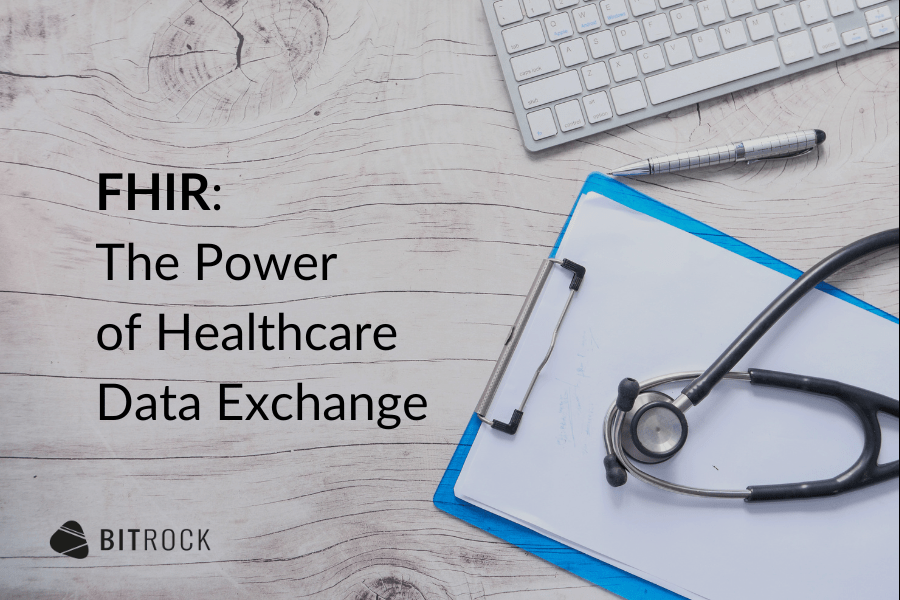FHIR, acronym for Fast Healthcare Interoperability Resources, is an interoperability standard for exchanging electronic health data. Developed by HL7 (Health Level Seven International), an international organization that focuses on standardization in the healthcare sector, FHIR is rapidly becoming the benchmark standard for clinical data management. It is a scalable and standardized format, which means that health information can be easily exchanged between different systems without sacrificing data integrity. It is suitable for a variety of applications and is supported by a wide range of vendors, including Apple, Google, and Microsoft.
FHIR is revolutionizing healthcare by enabling secure data sharing among hospitals, clinics, and even patients themselves. This interconnectedness opens a world of possibilities for improved care.
Data Interoperability and Artificial Intelligence
With over 2 million FHIR applications, the global healthcare market fueled by data interoperability standards is projected to reach a staggering $8 billion by the end of the year. Undoubtedly, 2024 marks a turning point for the healthcare sector. Stakeholders across the industry are demanding seamless data exchange to improve care delivery and outcomes. Patients demand better access to their own health information, frontline clinicians need reliable, accurate data at their fingertips for informed treatment decisions and healthcare payers need interoperable data to facilitate collaborative, team-based care that reduces costs and improves quality.
However, converting existing data sources into FHIR compatible formats and integrating sources with different security protocols takes time and expertise. It goes without saying that with the increasing availability of healthcare data and the rapid progress in analytic techniques – whether machine learning, logic-based or statistical – Artificial Intelligence tools could transform the healthcare sector.
The World Health Organization (WHO) recognizes the potential of AI in enhancing health outcomes by strengthening clinical trials; improving medical diagnosis, treatment, self-care and person-centered care; and supplementing health care professionals’ knowledge, skills and competencies. For example, AI could be beneficial in settings with a lack of medical specialists, e.g. in interpreting retinal scans and radiology images among many others.
In response to the growing countries’ need to responsibly manage the rapid rise of AI health technologies, the World Health Organization has released a new publication listing key regulatory considerations on Artificial Intelligence (AI) for health. The publication outlines six areas for regulation:
- To foster trust, the publication stresses the importance of transparency and documentation, such as through documenting the entire product lifecycle and tracking development processes.
- For risk management, issues like ‘intended use’, ‘continuous learning’, human interventions, training models and cybersecurity threats must all be comprehensively addressed, with models made as simple as possible.
- Externally validating data and being clear about the intended use of AI helps assure safety and facilitate regulation.
- A commitment to data quality, such as through rigorously evaluating systems pre-release, is vital to ensuring systems do not amplify biases and errors.
- The challenges posed by important, complex regulations – such as the General Data Protection Regulation (GDPR) in Europe and the Health Insurance Portability and Accountability Act (HIPAA) in the United States of America – are addressed with an emphasis on understanding the scope of jurisdiction and consent requirements, in service of privacy and data protection.
- Fostering collaboration between regulatory bodies, patients, healthcare professionals, industry representatives, and government partners, can help ensure products and services stay compliant with regulation throughout their life cycles.
AI and FHIR are a powerful duo with both positive and negative implications. AI can unlock the potential of FHIR data, leading to better analysis, improved interoperability, personalized care, and automation. At the same time, there are many concerns regarding privacy, bias, lack of transparency, and accessibility of AI tools in healthcare. In a nutshell, finding the right balance between these forces is crucial to maximize the benefits of AI in FHIR while mitigating its potential risks (AI Observability tools and the MLOps approach are critical factors).
Enabling a Connected Future for Healthcare
In this rapidly growing scenario, Bitrock supports organizations to achieve FHIR compliance swiftly and efficiently, without overburdening IT resources. Few other companies can match the expertise of Bitrock’s professionals, who have hundreds of days of experience working on projects involving data exchange and processing within the FHIR protocol.
Bitrock supports enterprise clients with an integrated, end-to-end approach that leverages the power of cutting-edge technologies, including modern event-driven paradigms and data-intensive application offerings. In addition, the Fortitude Group’s expertise in AI/ML and MLOps (AI Readiness & AI Observability) allows us to develop and implement a path that seamlessly moves from protocol implementation to the use of advanced data processing techniques using Artificial Intelligence and Machine Learning, enabling innovative use cases with a clear business impact.
All this unlocks seamless data sharing across the care continuum, paving the way for a future of connected, collaborative care that benefits all stakeholders.


